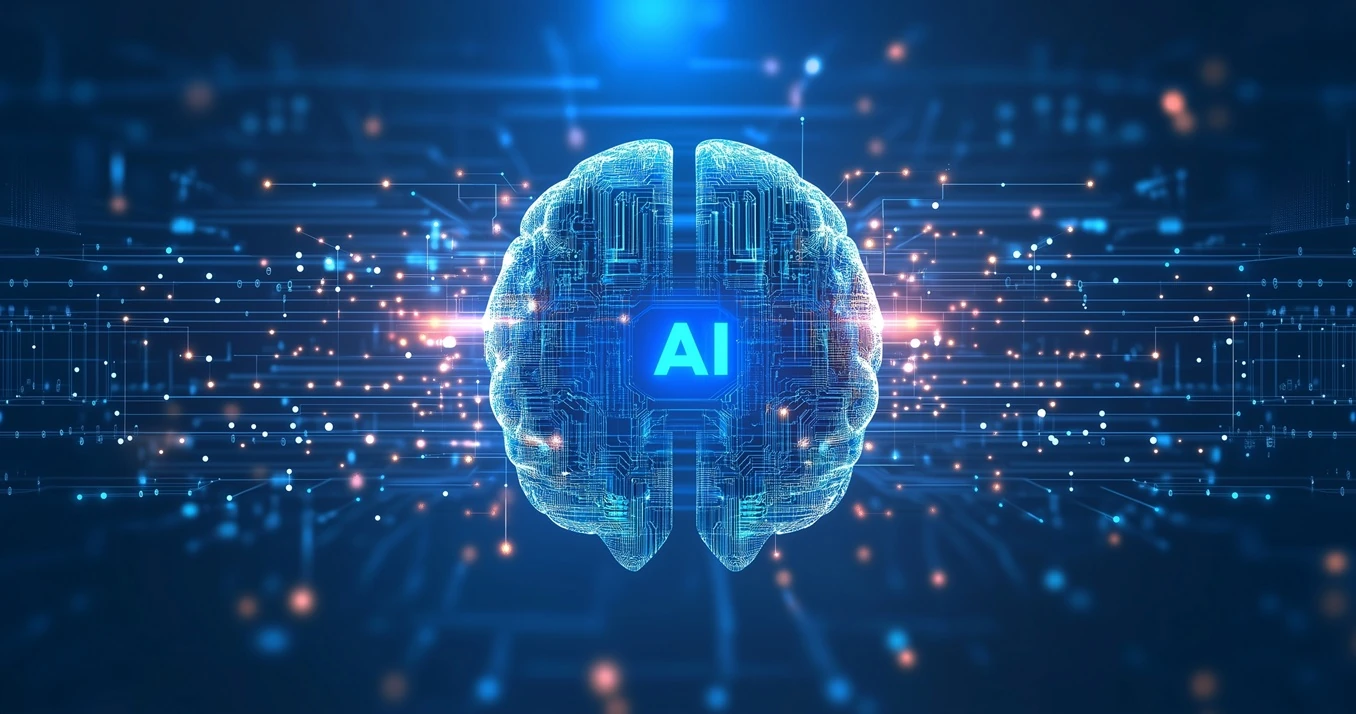AI Data Security: Safeguarding Australian Enterprises in the Digital Age
Estimated reading time: 15 minutes
Key Takeaways
- AI data security is crucial for protecting sensitive information in the evolving digital landscape.
- AI-driven solutions enhance threat detection, proactive defense, and operational efficiency.
- Data protection AI, AI compliance, and data privacy AI are essential for maintaining data integrity and regulatory adherence.
- The Australian AI data security market is expanding, presenting both opportunities and challenges for enterprises.
- Implementing AI data security requires strategic integration, staff training, and continuous monitoring.
Table of contents
- Understanding AI Data Security
- Data Protection through AI
- AI Compliance for Australian Enterprises
- The Australian AI Data Security Landscape
- Data Privacy and AI
- Implementing AI Data Security in Your Enterprise
- Benefits of AI-Driven Data Security for Australian Enterprises
- Future Trends in AI Data Security
- Conclusion
- Frequently Asked Questions
In the fast-paced digital era we now find ourselves in, AI data security has become a cornerstone for modern enterprises in Australia. As organisations increasingly rely on AI-driven solutions to safeguard their data, understanding the intersection of artificial intelligence, data protection, and compliance has never been more crucial.
This blog delves into data protection AI, AI compliance, and data privacy AI, providing Australian businesses with the insights needed to protect sensitive information effectively.
Understanding AI Data Security
AI data security refers to the use of artificial intelligence and machine learning technologies to protect sensitive information, detect threats, and enhance overall cybersecurity posture. In Australia, the adoption of AI for data security is rapidly growing, with organisations leveraging these advanced technologies to stay ahead of evolving cyber threats (IT Brief).
What is AI Data Security?
AI data security utilises artificial intelligence and machine learning to analyse vast datasets, identifying patterns and anomalies that indicate potential security breaches. Traditional security methods often rely on predefined rules and signatures, which may not effectively detect sophisticated or emerging threats. In contrast, AI systems can learn from data, adapting to new threats in real-time and providing a dynamic defense mechanism.
Importance in the Current Digital Landscape
The digital landscape is constantly evolving, with cyber threats becoming more sophisticated and frequent. Traditional security measures are no longer sufficient to counteract advanced attacks. AI offers a robust solution by providing:
- Enhanced Threat Detection: AI can sift through large volumes of data to identify unusual activities that may signify a breach.
- Proactive Defense: By predicting potential threats, AI enables organisations to take preventive measures before an attack occurs.
- Efficiency: Automating security processes reduces the burden on human teams, allowing them to focus on strategic initiatives.
In Australia, the rapid growth of AI adoption for data security purposes underscores its critical role in protecting enterprises from cyber threats (IT Brief).
Data Protection through AI
Data protection AI encompasses the various ways artificial intelligence enhances the security and integrity of data within an organisation. By leveraging AI-powered tools, businesses can achieve more effective and efficient data protection strategies.
Enhancing Threat Detection and Response
AI-powered security systems can analyse vast amounts of data in real-time, identifying potential threats and anomalies far faster than traditional methods. This capability allows Australian enterprises to respond proactively to security risks, significantly reducing the likelihood of successful breaches (HubSpot).
- Real-Time Analysis: AI systems continuously monitor data streams, providing immediate detection of suspicious activities.
- Pattern Recognition: Machine learning algorithms recognise patterns that may indicate malicious behavior, enabling swift identification of threats.
- Automated Alerts: AI can trigger instant alerts to security teams, ensuring rapid response to potential security incidents.
Automated Security Measures
AI enables the automation of various security processes, including:
- Data Encryption: AI manages and automates encryption protocols to secure data both in transit and at rest.
- Network Monitoring: Continuous monitoring of network traffic to detect and respond to suspicious activities in real-time.
- Incident Response: Automated responses to security incidents help mitigate damage quickly and efficiently.
- Access Control: AI manages user permissions and access rights, ensuring that only authorised personnel can access sensitive information.
These automated systems operate 24/7, providing continuous protection against cyber threats (SentinelOne).
AI Compliance for Australian Enterprises
AI compliance ensures that AI-driven data security solutions adhere to relevant laws, regulations, and industry standards. For Australian businesses, maintaining compliance is essential for legal and ethical operations.
What is AI Compliance?
AI compliance involves ensuring that AI systems used for data security meet all regulatory requirements and industry standards. This includes adhering to data protection laws, maintaining ethical standards, and ensuring transparency in AI operations. For Australian enterprises, AI compliance is particularly relevant as the government works towards establishing mandatory guardrails for AI in high-risk settings (ISG Press Release).
Regulatory Landscape in Australia
Australia’s regulatory landscape for AI and data security is evolving. Key frameworks and standards include:
- Australian Privacy Principles (APPs): Guidelines for handling personal information to ensure privacy and data protection.
- Notifiable Data Breaches (NDB) Scheme: Requires organisations to notify individuals and the Australian Information Commissioner about data breaches that are likely to result in serious harm.
- Proposed AI Regulations: The Australian government is considering mandatory guardrails for AI in high-risk environments, aiming to ensure that AI systems are transparent, accountable, and secure.
Staying informed about these developments is crucial for businesses to maintain compliance and avoid legal repercussions.
AI-Driven Compliance Solutions
AI technologies assist enterprises in meeting and maintaining compliance requirements by:
- Automatic Monitoring: AI systems continuously monitor data handling practices to ensure adherence to regulations.
- Flagging Compliance Issues: AI identifies potential compliance breaches, enabling timely corrective actions.
- Generating Documentation: Automated generation of necessary documentation for audits and regulatory reviews.
These capabilities streamline the compliance process, reducing the administrative burden on businesses and ensuring that they remain compliant with evolving regulations (ISG Press Release).
The Australian AI Data Security Landscape
The Australian AI data security market is experiencing significant growth, driven by increasing cyber threats and the demand for sophisticated security solutions. However, enterprises face several challenges in implementing AI data security effectively.
Market Growth and Challenges
The Australian market for AI data security is expanding rapidly, fueled by the need to counteract sophisticated cyber threats. Key factors contributing to this growth include:
- Rising Cyber Threats: The increasing prevalence of cyber-attacks necessitates advanced security measures.
- Demand for Sophisticated Solutions: Businesses seek AI-driven tools that offer comprehensive protection and proactive threat management.
- Technological Advancements: Innovations in AI and machine learning enhance the capabilities of data security systems.
Despite the promising growth, enterprises encounter challenges such as:
- Shortage of Skilled Cybersecurity Professionals: There is a high demand for experts who can implement and manage AI data security systems.
- Integration with Existing Infrastructure: Seamlessly integrating AI solutions with existing IT infrastructure can be complex and resource-intensive.
- Balancing Security with Operational Efficiency: Ensuring that security measures do not impede business operations requires careful planning and execution.
(IT Brief)
Case Studies and Examples
Successful implementations of AI data security in Australian enterprises demonstrate the effectiveness of AI-driven solutions:
- Financial Services Sector: Leading banks in Australia have integrated AI systems to monitor transactions in real-time, detecting and preventing fraudulent activities swiftly.
- Healthcare Industry: Hospitals use AI to protect patient data, ensuring compliance with privacy regulations while maintaining efficient data access for medical staff.
- Retail Sector: Major retailers employ AI to secure customer information, enhancing trust and safeguarding against data breaches.
These case studies highlight how AI data security solutions can be tailored to meet the specific needs of different industries, providing robust protection and operational benefits.
Data Privacy and AI
Data privacy AI is the application of AI technologies to protect personal and corporate data from unauthorised access and breaches. Maintaining data privacy is essential for building trust and ensuring compliance with privacy laws.
What is Data Privacy AI?
Data privacy AI involves using AI to secure data by preventing unauthorised access and maintaining the confidentiality of sensitive information. This includes:
- Protecting Personal Data: Ensuring that individual personal information is safeguarded against breaches.
- Corporate Data Security: Safeguarding business-critical information from cyber threats.
- Maintaining Trust: Building and maintaining trust with customers and stakeholders by demonstrating a commitment to data privacy.
Striking the Right Balance
While AI enhances data security, it also raises concerns about data privacy. Australian enterprises must balance leveraging AI for security with protecting individual privacy rights. Key considerations include:
- Data Collection: Ensuring that only necessary data is collected to minimise exposure.
- Transparency: Being transparent about how data is used and protected by AI systems.
- Consent: Obtaining explicit consent from individuals for data collection and processing.
Addressing these concerns is crucial for maintaining public trust and adhering to privacy regulations.
Best Practices for Data Privacy in AI
To ensure data privacy when deploying AI solutions, businesses should adopt the following best practices:
- Data Minimisation Techniques: Collecting only the data that is necessary for specific purposes to reduce exposure and potential breaches.
- Anonymisation and Pseudonymisation Methods: Protecting individual identities by removing or obfuscating personal identifiers within datasets.
- Differential Privacy: Implementing techniques that allow AI to analyse data without exposing individual data points, ensuring privacy protection.
- Regular Audits of AI Systems: Conducting periodic assessments to identify and mitigate potential privacy risks, ensuring ongoing compliance and security.
By adhering to these best practices, Australian enterprises can effectively balance AI-driven data security with robust data privacy measures.
Implementing AI Data Security in Your Enterprise
Integrating AI data security into your existing security framework requires a strategic approach. Here’s a step-by-step guide to help Australian businesses implement AI-driven security solutions effectively.
Key Steps for Integration
- Assess Current Security Infrastructure:
- Evaluate existing systems to identify vulnerabilities and areas for improvement.
- Conduct comprehensive security audits to understand the current threat landscape.
- Identify Areas for AI Enhancement:
- Determine specific security processes that can benefit from AI integration, such as threat detection, incident response, and access control.
- Prioritise areas where AI can provide the most significant impact on security posture.
- Select Appropriate AI-Powered Security Solutions:
- Choose AI tools that align with your enterprise’s security needs and compliance requirements.
- Consider factors such as scalability, ease of integration, and vendor reputation.
- Invest in Staff Training and Upskilling:
- Ensure that your team is knowledgeable about AI technologies and their implementation.
- Provide training programs to help staff effectively manage and utilise AI security systems.
- Continuously Monitor and Refine AI Systems:
- Regularly evaluate the performance of AI security measures and make necessary adjustments.
- Stay updated with the latest advancements in AI to continually enhance your security strategy.
Necessary Infrastructure, Tools, and Expertise
- Robust Data Storage and Processing Capabilities: Ensure that your IT infrastructure can handle the data processing demands of AI systems.
- Essential AI Tools and Software: Invest in reliable and scalable AI security tools that meet your enterprise’s specific needs.
- Expertise in AI and Cybersecurity: Either hire skilled professionals or partner with experts who can manage and optimise AI-driven security solutions.
Common Pitfalls and How to Avoid Them
- Resistance to Change: Address employee concerns through effective communication and training to ensure smooth adoption of AI technologies.
- Inadequate Training: Invest in comprehensive training programs to equip your team with the necessary skills to manage AI systems.
- Integration Challenges: Plan thoroughly to ensure seamless integration of AI solutions with existing infrastructure, minimising disruptions.
- Overreliance on Automation: Maintain a balance between automated systems and human oversight to ensure comprehensive security coverage.
By proactively addressing these challenges, Australian enterprises can ensure a successful integration of AI data security into their existing frameworks.
Benefits of AI-Driven Data Security for Australian Enterprises
Implementing AI data security brings numerous advantages to Australian businesses, enhancing their ability to protect sensitive information and maintain a robust security posture.
Enhanced Threat Detection and Response Times
AI significantly improves the speed and accuracy of detecting and responding to security threats. By analysing data in real-time, AI systems can identify and mitigate threats faster than traditional methods, reducing the window of opportunity for cyber attackers.
Improved Accuracy in Identifying and Mitigating Security Risks
AI algorithms excel at distinguishing between false positives and genuine threats, ensuring that security teams focus on actual risks. This precision enhances the overall effectiveness of security measures, preventing unnecessary disruptions and resource wastage.
Cost-Effectiveness and Scalability of AI Solutions
AI-driven security solutions automate routine tasks, reducing the need for extensive human intervention and lowering operational costs. Additionally, AI systems can scale with enterprise growth, adapting to increasing data volumes and evolving security needs without significant additional investments.
Additional Benefits
- Reduced Human Error: Automation minimises the risk of errors that can occur in manual security processes.
- Continuous Monitoring: AI systems provide 24/7 surveillance without fatigue, ensuring constant protection.
- Comprehensive Security Insights: AI can analyse complex datasets to provide deep insights into security patterns and trends, enabling informed decision-making.
These benefits collectively enhance the security posture of Australian enterprises, making AI-driven data security a valuable investment (ISG Press Release).
Future Trends in AI Data Security
The landscape of AI data security is continually evolving, with emerging technologies and innovations shaping the future of data protection. Here are some key trends to watch:
Emerging Technologies
- Quantum-Resistant Encryption Algorithms: As quantum computing advances, traditional encryption methods may become vulnerable. Quantum-resistant algorithms are being developed to secure data against quantum threats, ensuring long-term data protection.
- AI-Powered Predictive Threat Intelligence: AI systems will increasingly focus on predicting and preparing for potential security breaches before they occur, using vast amounts of data to forecast and mitigate threats proactively.
- Automated Ethical Hacking Systems: AI-driven systems that perform ethical hacking will become more prevalent, identifying and addressing vulnerabilities in security frameworks before malicious actors can exploit them.
- Enhanced Privacy-Preserving AI Techniques: Innovations such as federated learning and homomorphic encryption will enable AI to secure data without compromising individual privacy, striking a balance between security and privacy.
Evolution of AI-Driven Security Measures
- Integration with Other Emerging Technologies: Combining AI with blockchain, IoT, and other technologies to create multi-layered security solutions.
- Advanced Machine Learning Models: Developing more sophisticated machine learning models that can better understand and counteract complex cyber threats.
- Increased Automation: Further automating security processes to enhance efficiency and responsiveness, reducing the reliance on human intervention.
These trends indicate a future where AI plays an even more integral role in data security, providing robust and adaptable defenses against evolving cyber threats.
Conclusion
As cyber threats continue to evolve, AI data security has become indispensable for Australian enterprises. By embracing AI-driven solutions for data protection AI, AI compliance, and data privacy AI, organisations can significantly enhance their security posture and stay ahead of potential risks (Security Brief, IT Brief).
Recap of Key Points
- AI Data Security is crucial for protecting sensitive information in the digital age.
- Data Protection AI enhances threat detection and automates security measures.
- AI Compliance ensures adherence to regulatory standards, safeguarding legal and ethical operations.
- The Australian AI Data Security Landscape is growing, with both opportunities and challenges.
- Data Privacy AI balances data security with individual privacy rights.
- Implementing AI data security involves strategic integration and overcoming common challenges.
- Benefits of AI-Driven Data Security include enhanced threat detection, improved accuracy, cost-effectiveness, and scalability.
- Future trends point towards more advanced and integrated AI security solutions.
Embrace AI-Driven Solutions Today
To remain competitive and secure in the digital age, Australian businesses should explore and implement AI data security options tailored to their specific needs and challenges. The future of data protection lies in the intelligent application of AI technologies, and the time to act is now.
Investing in AI data security not only safeguards your enterprise against current threats but also equips you to face future challenges with confidence. Don’t wait—transform your data security strategy with AI today.
Frequently Asked Questions
- What is AI data security?
- How do AI-driven solutions enhance threat detection?
- What are the key benefits of AI-driven data security?
- How can Australian enterprises ensure AI compliance?
- What future trends are shaping AI data security?
What is AI data security?
AI data security involves using artificial intelligence and machine learning technologies to protect sensitive information, detect threats, and enhance overall cybersecurity measures. It allows for real-time analysis and adaptive defense mechanisms against evolving cyber threats.
How do AI-driven solutions enhance threat detection?
AI-driven solutions enhance threat detection by analysing vast amounts of data in real-time, identifying unusual patterns and anomalies that may indicate security breaches. They can adapt to new threats dynamically, providing a more proactive and efficient approach compared to traditional security methods.
What are the key benefits of AI-driven data security?
Key benefits include enhanced threat detection, proactive defense, increased operational efficiency, reduced human error, continuous monitoring, and comprehensive security insights. Additionally, AI-driven solutions offer cost-effectiveness and scalability to adapt to growing data and emerging threats.
How can Australian enterprises ensure AI compliance?
Australian enterprises can ensure AI compliance by staying informed about relevant laws and regulations, implementing AI-driven compliance solutions for automatic monitoring and issue flagging, maintaining transparency in AI operations, and regularly auditing AI systems to identify and mitigate compliance risks.
What future trends are shaping AI data security?
Future trends include the development of quantum-resistant encryption algorithms, AI-powered predictive threat intelligence, automated ethical hacking systems, and enhanced privacy-preserving AI techniques. Additionally, the integration of AI with other emerging technologies and the evolution of advanced machine learning models will continue to shape the landscape of AI data security.



